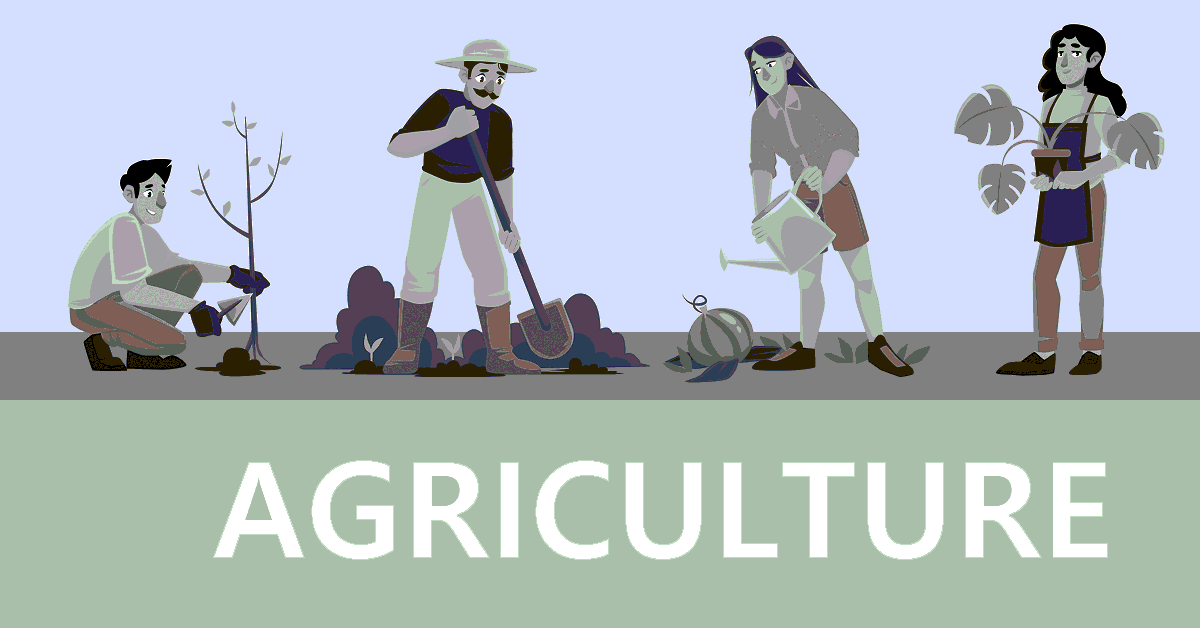
Agriculture has been around for thousands of years, and with time, the methods of farming have evolved and improved. Today, with the advancement of information technology, a new era of farming is taking shape - Agriculture 4.0. Agriculture 4.0 represents a new era in farming, where technology and data drive sustainable and efficient production. In this article, we'll take a closer look at the impact of information technology on agriculture, and what it means for farmers, agri-businesses, and the industry as a whole.
Overview of Information Technology in Agriculture
Information technology has been transforming the way we live and work, and agriculture is no exception. With the rise of smart farming and digital agriculture, farmers are now using technology to enhance their production processes, increase efficiency, and improve yields. From precision agriculture to IoT and AI, information technology is revolutionizing the way we approach farming.
Precision Agriculture: Enhancing Efficiency and Productivity
Precision agriculture is a farming management concept that uses technology and data to optimize crop production. Precision agriculture enables farmers to collect and analyze data about their crops, soil, and environment, to make informed decisions about their farming operations. The use of precision agriculture has several benefits, including:
- Increased crop yields: Precision agriculture has been shown to increase crop yields by 5-15% and reduce fertilizer usage by 10-20%.
- Improved efficiency: By using data to make informed decisions, farmers can optimize their production processes, reduce waste, and increase efficiency.
- Better resource management: Precision agriculture helps farmers to better understand their resources, such as soil and water, and how they can be used more effectively.
IoT and AI in Agriculture
IoT and AI are two of the most important technologies that are shaping the future of agriculture. IoT involves the use of connected devices and sensors to gather and transmit data, while AI uses machine learning and other advanced technologies to analyze this data. When combined, IoT and AI have the potential to revolutionize agriculture in the following ways:
- Real-time data: IoT-enabled devices and sensors provide real-time data and insights to farmers, enabling them to make informed decisions in real-time.
- Predictive analytics: AI-powered predictive analytics enable farmers to predict future trends and patterns, allowing them to make informed decisions about their farming operations.
- Automation: IoT and AI can be used to automate many tasks, freeing up time and resources for farmers and enabling them to focus on more critical aspects of their operations.
Successful Implementation of Information Technology in Agriculture
There are many examples of successful implementation of information technology in agriculture. One such example is John Deere's Precision Agriculture platform, which uses IoT and AI to provide real-time data and insights to farmers for optimized crop management. Another example is the use of unmanned aerial vehicles (UAVs) for remote sensing in agriculture for crop monitoring and mapping.
Challenges and Limitations of Information Technology in Agriculture
While information technology has the potential to revolutionize agriculture, there are also challenges and limitations that need to be addressed. Some of these include:
- Cost: Implementing information technology in agriculture can be expensive, and farmers need to weigh the benefits against the costs.
- Skills: Farmers and agri-businesses need to have the necessary skills and knowledge to make the most of the technologies available to them.
- Data security: With the growing amount of data being generated in agriculture, there are concerns about data security and privacy.
- Regulation: There are regulatory hurdles that need to be overcome in order to fully realize the potential of information technology in agriculture.
For example, data privacy and security are major concerns for farmers as they collect and share sensitive information about their crops and land. Governments must establish clear policies and regulations to protect the privacy and security of farmers' data while also ensuring that technology companies can access and use this data to improve their services.
Another challenge is the lack of standardization in the agriculture technology industry, which can make it difficult for farmers to adopt new technologies and for technology companies to provide consistent services. Industry leaders and government organizations must work together to develop standards and protocols that ensure the interoperability and compatibility of different agriculture technologies.
Future Prospects and Trends in Agriculture 4.0
Despite the challenges, the future of agriculture technology is bright and full of opportunities. As technology continues to advance, we can expect to see more innovations that further enhance the productivity and sustainability of agriculture.
One of the most promising areas of development is the integration of blockchain technology in agriculture. Blockchain allows for secure and transparent tracking of food products from farm to table, which can improve food safety and traceability, increase efficiency, and reduce waste.
Another trend is the growing use of vertical farming, which uses advanced technologies such as LED lighting and hydroponic systems to grow crops in controlled indoor environments. This approach can improve food security, reduce the impact of climate change on agriculture, and increase the efficiency and productivity of crop production.
Conclusion
Agriculture 4.0 represents a new era in farming, where technology and data drive sustainable and efficient production. With the help of precision agriculture, IoT, AI, and other cutting-edge technologies, farmers can better manage their crops and land, increase yields, and reduce their environmental impact.
However, there are also challenges that need to be overcome, including data privacy and security, lack of standardization, and regulatory hurdles. Nevertheless, the future of agriculture technology is bright, and we can expect to see more innovations and breakthroughs that further revolutionize the way we grow and manage our food.
In conclusion, it is important for farmers, agri-businesses, and government organizations to embrace the power of information technology in agriculture and work together to overcome the challenges and realize the full potential of Agriculture 4.0.
Agricultural Science




